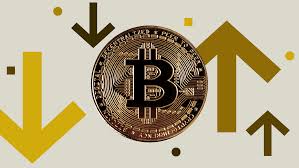
Written By : Asst. Prof. Dr. Firas Hussein Ali Al-Saffar
Researcher in Department of Crisis Management
Center for Strategic Studies/University of Karbala
November/2024
Translated By.
Assistant Lecturer Atheer Makki Al-Shammary
Atheer.m@uokerbala.edu.iq
Bitcoin cryptocurrency prices increased to record levels, exceeding (80) thousand dollars for the first time, after US President Donald Trump won the presidential elections. Trump’s victory led to great optimism in the digital currency industry, which spent more than (100) million dollars to support a group of candidates who support digital currencies in the US elections. The cryptocurrency increased on Sunday, November 10, 2024, to unprecedented level of (80,092) dollars. The victory of Republican Donald Trump in the US presidential elections contributed to strengthening the value of the cryptocurrency, which carries promises of entering a new golden age that will enhance its shine, as Trump has repeatedly expressed his support for crypto assets, and promised to make the United States “the superpower of Bitcoin and cryptocurrencies in the world” ( ). In his election campaign, Trump pledged to put the United States at the forefront of the digital assets industry, including creating a strategic reserve for “Bitcoin” and appointing regulatory bodies concerned with digital assets ( ). His position is the opposite of the Biden administration, which is in favor of strict regulation of the cryptocurrency sector, which is largely not controlled by institutions. Highly volatile digital currencies have also seen a strong boost; such as the “Memcoins” currency, and the Dogecoin currency, which is promoted by billionaire Elon Musk, a staunch supporter of Trump, by supporting cryptocurrencies ( ).
Figure (1) The development of the prices of the cryptocurrency Bitcoin
Despite the positive indicators, Bitcoin faces several challenges that must be taken into account, including: the high volatility of the currency, and the continuous instability of its prices, which may expose investors to significant losses. In addition, there is an increase in regulatory oversight of digital currency markets globally, as governments view these assets with caution, and consider imposing new laws to control them, which may affect market trends and price stability ( ). With this record high, mixed opinions have emerged about Bitcoin’s ability to maintain these levels. Despite the strong growth, on-chain trading data shows that the trend may face future challenges in the market. Derivatives market data indicates a (40.69%) increase in trading volume to reach (82.08) billion dollars, with a (4.07%) increase in open interest, reflecting the growing speculative interest. However, this high activity may lead to sharp fluctuations, in the event of a rapid change in market sentiment. Also, the “fear and greed” index for Bitcoin rose to the “extreme greed” level at (78), which is usually a potential indicator of an imminent price correction ( ). Bitcoin is a cryptocurrency that appeared in 2008, invented by an anonymous person or group of people, known as Satoshi Nakamoto. The currency began to be used in 2009, when its application was released as an open source program. It is the first decentralized digital currency, without the presence of a central bank, that can be sent from one person to another, via the Bitcoin network in a peer-to-peer manner, without the need for a third party (an intermediary such as banks). Network transfers are verified using encryption, and recorded in a distributed ledger called the blockchain. Bitcoin is created as a reward for a process known as mining. It can be exchanged for other currencies, products, and services. Research produced by the University of Cambridge estimates that in 2017, there are between (2.9) and (5.8) million users using a digital currency wallet, most of whom use Bitcoin. Bitcoin has been criticized for its potential use in illegal transactions, the high amount of electricity used to mine new bitcoins, the volatility of the exchange rate, and hacks of bitcoin exchanges. Some economists have described it as a “speculative bubble.” The Bitcoin network has been in operation since 2009, and has not stopped since then. Because of the consensus system in the currency, no one has been able to hack the Bitcoin block chain, and most hacks are due to human errors in portfolio management, not design flaws.
